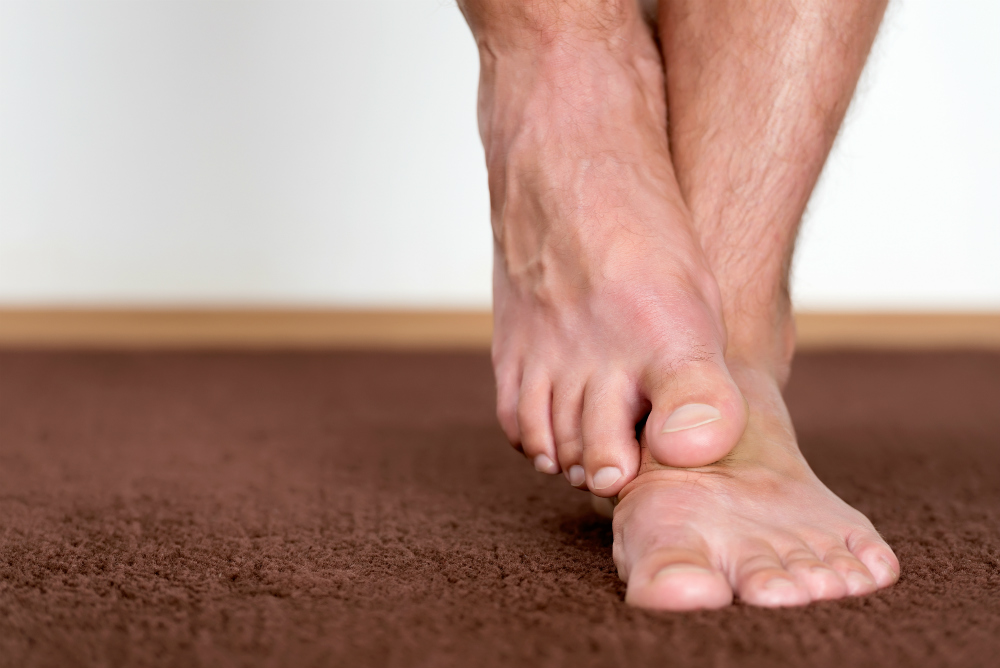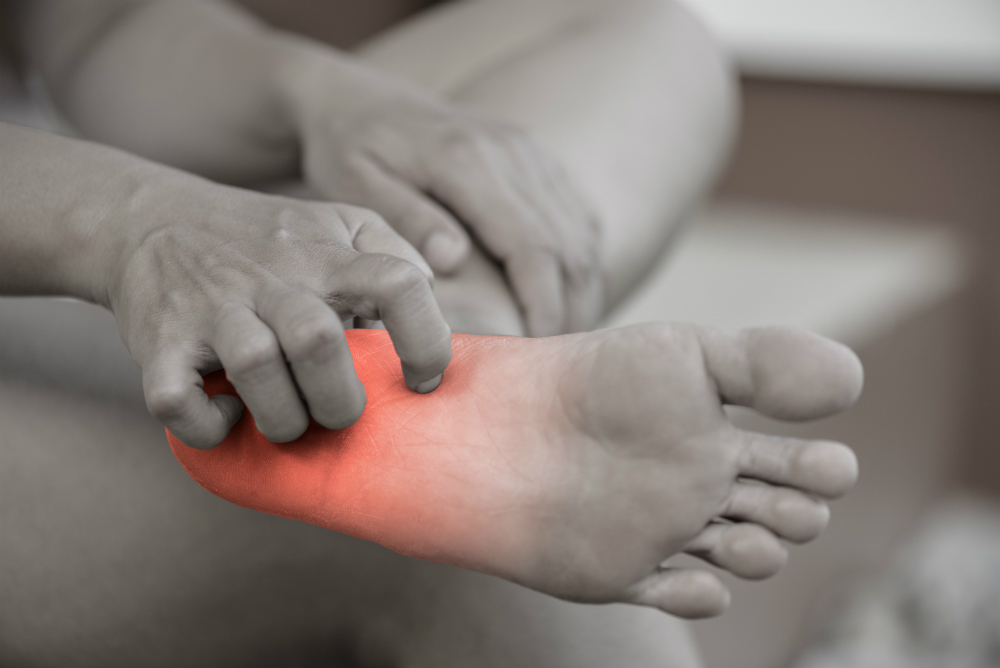Neuropathy
Are you suffering from nerve pain, numbness, or muscle weakness in the feet and legs? Dr. Alan Shih and his team created a division of our podiatric practice dedicated to fighting neuropathy in all its forms –the Tucson Neuropathy Institute.
Don’t let anyone tell you there’s no hope! Don’t let anyone tell you that symptom management for the rest of your life is the best possible outcome. With customized treatment plans and state-of-the-art technology, we have helped countless people like you improve their lives and recover as much nerve function as possible.


What is peripheral neuropathy?
Peripheral neuropathy is a progressive condition that slowly damages the peripheral nerves, most frequently in the feet and legs.
Because peripheral nerves are responsible for performing various functions, the symptoms of peripheral neuropathy can manifest in several different ways:
- Sensory issues. The lines of communication between the senses and the brain are disrupted. Sometimes this means unexplained pain (burning, jabbing, throbbing, prickling, etc.). In more advanced cases, instead of pain there may be complete numbness.
- Motor issues. When motor nerves are damaged, muscle control may be limited—the brain can’t properly issue its commands. This may lead to muscle weakness, lack of coordination, or even paralysis.
- Systemic issues. Nerves are also responsible for regulating autonomic processes like digestion, blood pressure, and body temperature. Damages to these nerves can produce unwanted problems and changes on a system-wide level.
On a day-to-day basis, people suffering from neuropathy might lose the ability to work, drive their cars, or walk more than a short distance at a time without pain. Their risk of injury and infection in the feet increases exponentially. And the problems will only get worse until you seek help.
What causes peripheral neuropathy?
Nerve damage can be caused by a wide range of underlying conditions or injuries. Diabetes is a factor in a significant percentage of those cases, but it is far from the only one. Neuropathy can also be related to issues such as:
- Thyroid problems
- Reactions to certain medications or medical treatments, including chemotherapy
- Other medical problems, including genetic disorders, autoimmune diseases, infections, etc.
- Direct injury to the nerves
- Dietary deficiencies
Identifying the root causes of your neuropathy can influence the treatment approach to some degree. However, we like to say we are less focused on the cause and more focused on the outcome when it comes to neuropathy.
How do we treat neuropathy at the Tucson Neuropathy Institute?
Thanks to relatively recent advances in medical therapies and technology, we are now able to offer state-of-the-art, customized treatment options that are focused on curing the nerve damage (to the greatest extent possible), rather than simply blunting pain or discomfort.
While there’s no guarantee that nerve damage can be fully reversed, we are constantly pushing at the boundaries of what’s possible for this condition. Even a partial restoration of nerve function could be the change that allows you to walk without pain, to begin driving again, to be able to play with your grandkids again—in other words, to re-establish mobility, independence, and a high quality of life.
(If you don’t believe us, check out our testimonial section for real stories and video from our patients.)
Technology and research that we are able to incorporate into neuropathy treatments include, but are not limited to:
- Guided cortisone injections. While any doctor can provide an injection of cortisone, nerve anatomy is highly complex and isolating the correction spot for injection is difficult—especially if the doctor has not specialized in nerve care. (That’s not to say they’re bad doctors! It just means that if you have a nerve issue, you want to see a nerve specialist.)
- Radiofrequency nerve ablation. This minimally-invasive technique allows us to precisely target specific nerves with a mild electrical current. This way, we can stop problematic nerves from sending pain signals to the brain without affecting nearby nerves that are working well.

- Laser therapy. This treatment uses light energy to stimulate cellular activity. It increases blood flow and kickstarts your body’s natural healing process. Studies have shown that it not only has a positive impact on pain and swelling, but can also help regenerate healthy nerve tissue and improve nerve function.
- Decompression surgery. If a particular nerve has been block or compressed due to an injury or other factor, a surgical release can allow it to function more normally again.
With a wealth of options and a commitment to personalized care, you’re in good hands at the Tucson Neuropathy Institute—part of the Tucson Foot and Ankle Institute family. To schedule an appointment, call us at (520) 545-0202.
